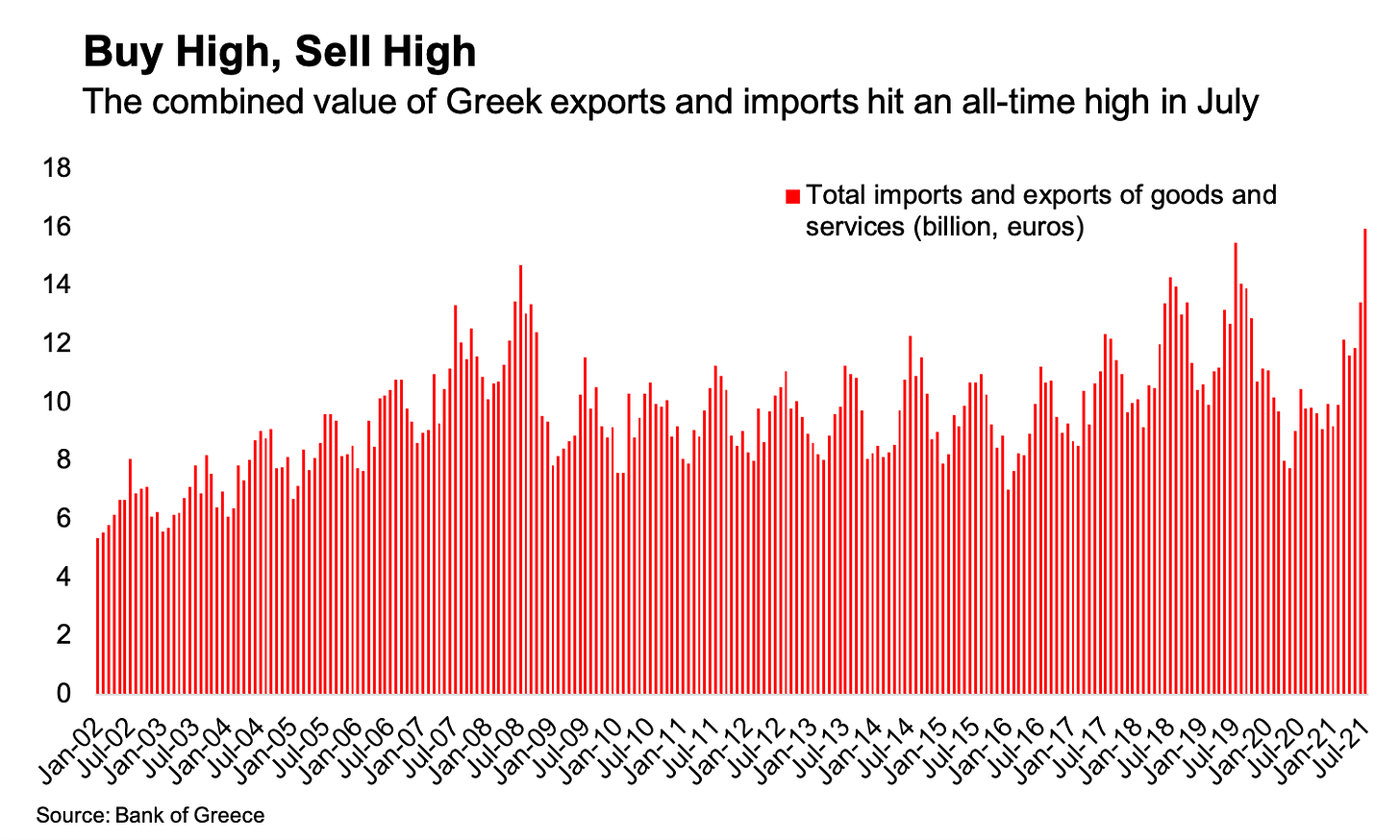Macro roundup: External boost
Tourism and export growth gave Greece a current account surplus in July
A recovery in tourism in July was enough for Greece’s current account to post a monthly surplus for the first time since September 2019.
The 2.3 billion euros in travel receipts was more than triple the amount in July last year, and more than half of the total for the whole of 2020. Receipts were still down by almost 40 percent compared with July 2019 — but with leading indicators pointing to another strong month in August, the sector has performed well relative to the expectations earlier this year, when the country was still under lockdown.
Aside from pushing the current account into surplus for the month, the robust take also augmented the trend of rising goods exports. This led to July registering an all-time high in the combined value of exports and imports of goods and services.
We've looked at this trend in this newsletter from the import side, noting that import growth this year is in large part due to the inflation in input prices.
Our focus has been on import side because Greece is a country that perpetually runs a current account deficit, in the midst of a pandemic that smacked tourism — the country’s biggest export-earning sector — especially hard. With both exports and imports of goods rising, it’s the latter’s effect on the current account deficit that has the greater weight.
As with imports, the growth in the volume of exports has been substantially less this year than the growth in value. According to Eurostat data — which is from the national accounts rather than the balance of payments, but is broadly in line — the average year-on-year growth rate in export value in the first half of this year was 36 percent, compared with 11 percent for volume.
Domestically, the gas price crisis has thrust inflation to the centre of the political agenda. But for the current account, parallel growth in the value of exports has damped the inflationary impact of rising input prices, and provides a foundation for an improvement in tourism receipts to help stabilise the deficit this year.
If you’re enjoying this newsletter, consider sharing it with others who might also like it.
Next week’s key data
Monday, Sept. 27:
August credit and deposits (Bank of Greece)
Wednesday, Sept. 29:
September economic sentiment (European Commission)
Thursday, Sept. 30:
July retail sales (Elstat)
Elsewhere on the web
While on the subject of tourism, Greece used AI to determine which inbound travellers should be tested for Covid.
I didn’t link to an obituary of Mikis Theodorakis when he died, as I didn’t include the elsewhere on the web section that week. But the Economist’s one came out in the last week, and is quite moving.
The European Commission released its 11th post-programme enhanced surveillance report on Greece. These are always worth a read.
Nektaria Stamouli reports on the first of the “new generation” of migrant camps in Greece.
Jean-Claude Juncker on Merkel’s European legacy.
Digitising bureaucracy:
I’d love to get your thoughts and feedback, either in the comments, on Twitter or by reply if you received the newsletter by email. If you’re not subscribed yet, consider doing so now.






